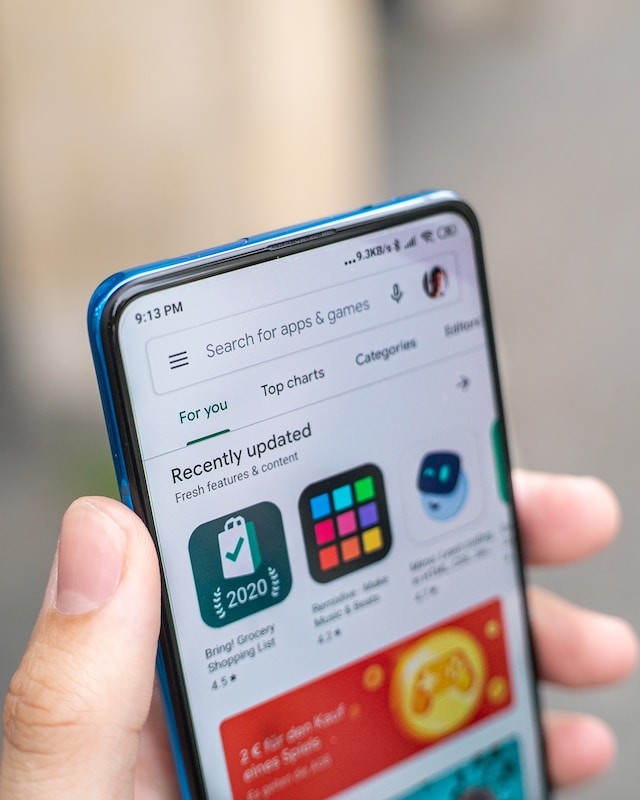Tracing the Trajectory: The Past, Present, and Future of Mobile Apps

The story of mobile apps began in the late 1990s with the advent of the Internet. The first recognized mobile apps were pre-installed on the device and primarily included simple games, ringtone editors, calculators, calendars, and contact databases.
The Humble Beginnings: Past of Mobile Apps

The Nokia 6110, launched in 1997, introduced the first mobile app in the form of a simple yet addictive game: Snake. However, these apps were extremely limited in their functionality and scope, and users could only use what was already installed on the device. The concept of a mobile application took a revolutionary turn in 2002 when the first smartphones, such as BlackBerry, were introduced.
These devices came with advanced features, including email, calendar, and contact databases, all bundled into one, thus paving the way for the mobile app revolution. However, the real game-changer came in 2008 with the launch of Apple's App Store, which introduced the concept of a dedicated platform where developers could create and publish their apps for users to download and install. This opened up a whole new world of possibilities and set the stage for the growth and evolution of mobile apps we witness today.
The Roaring Revolution: Present of Mobile Apps

Fast forward to the present day, and mobile apps have become an integral part of our daily lives. From banking, shopping, fitness, and education to entertainment, travel, and social networking, mobile apps have seeped into every aspect of our lives. They have revolutionized the way we communicate, work, shop, and even entertain ourselves.
The app market has become a thriving industry, with millions of apps available on various platforms like Apple's App Store and Google's Play Store. The app development process has also undergone significant changes, with developers now focusing on delivering a seamless user experience across multiple platforms. Modern-day apps are feature-rich and interactive and often leverage advanced technologies like AI, AR, VR, and machine learning, reflecting the technological advancements of the present era.
A Glimpse Into The Future: Future of Mobile Apps
As we look forward to the future, it's clear that the mobile app industry is set for even more transformation. The advent of technologies like 5G, AI, the Internet of Things (IoT), and Augmented Reality (AR) is set to reshape the app landscape.
Apps of the future are expected to be more personalized, intuitive, and intelligent. AI and machine learning will continue to drive a more personalized user experience, with apps capable of learning from user behaviors and preferences. AR and VR will push the boundaries of user experience, making apps more immersive and interactive. IoT, on the other hand, will enable apps to interact with connected devices, paving the way for smart homes and cities.
Mobile Apps and 5G: A Match Made in the Future
.jpg)
The advent of 5G technology is set to revolutionize the mobile app industry. With its promise of high-speed data transfer, low latency, and improved connectivity, 5G will enable the development of more complex, feature-rich apps.
For instance, gaming apps will be able to deliver a more seamless and immersive experience, while streaming apps will be able to offer high-quality content with minimal buffering. Furthermore, 5G will also pave the way for the advancement of technologies like AR, VR, and IoT, leading to the development of more innovative and sophisticated apps. In essence, the potential of 5G in shaping the future of mobile apps is immense, and it's exciting to envision the possibilities it holds.
Wrapping Up: The Endless Possibilities
In conclusion, the evolution of mobile apps has been a fascinating journey, marked by technological advancements and changing user preferences. From simple pre-installed apps to the feature-rich, interactive apps of today, the mobile app industry has come a long way.
And with the advent of technologies like AI, AR, VR, IoT, and 5G, the future of mobile apps looks even more promising. As we continue to embrace digital transformation, mobile apps will undoubtedly play a crucial role in shaping the way we live, work, and entertain ourselves.

